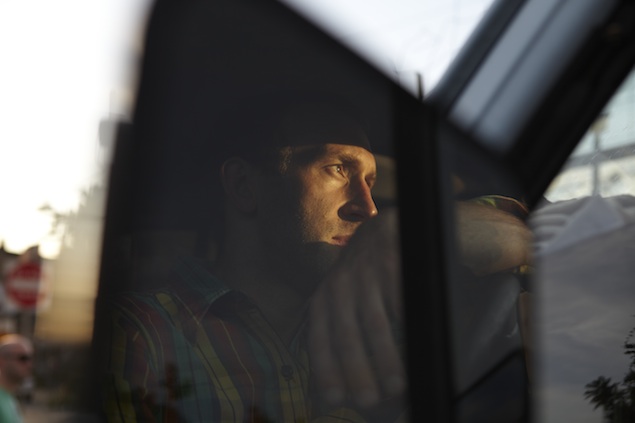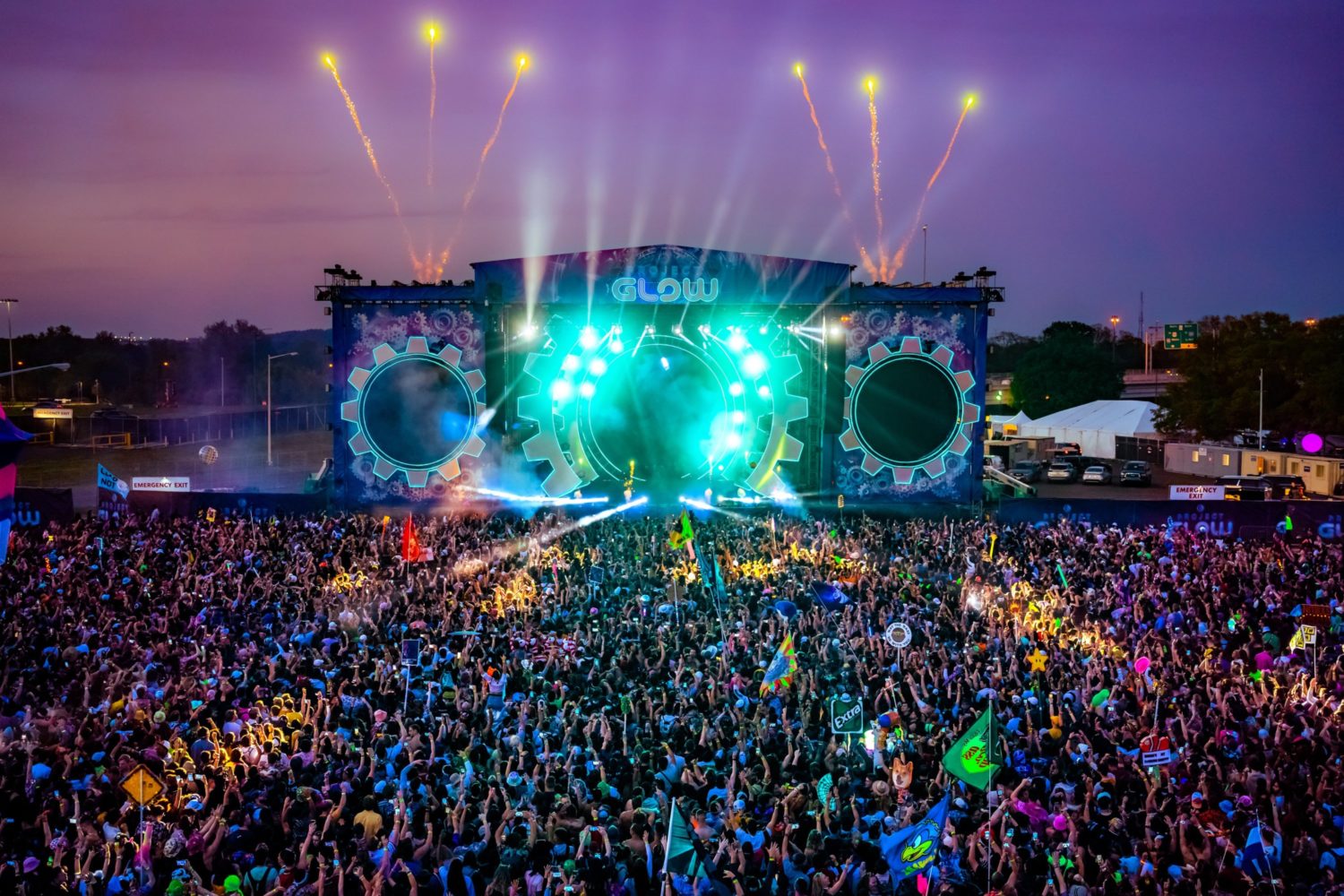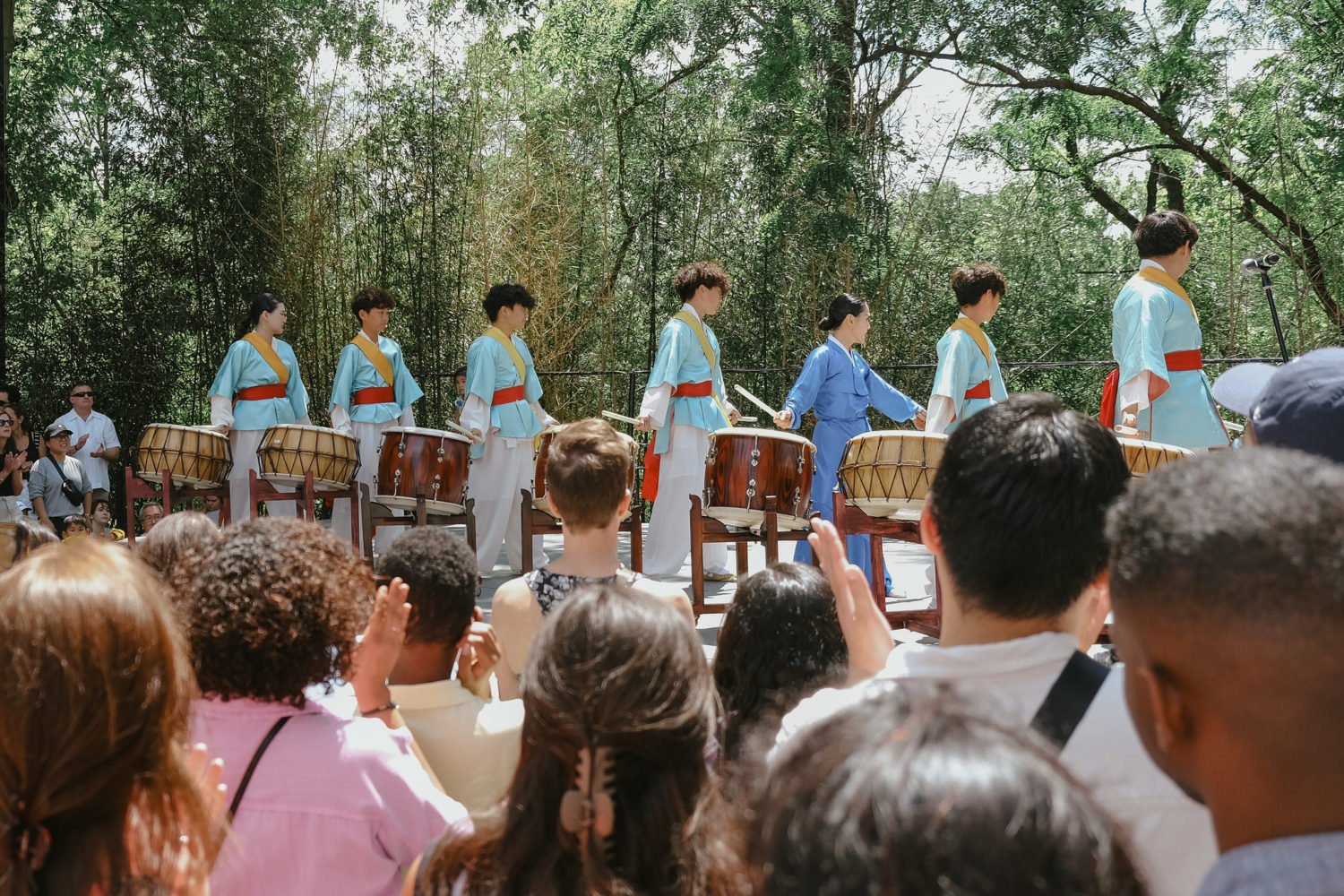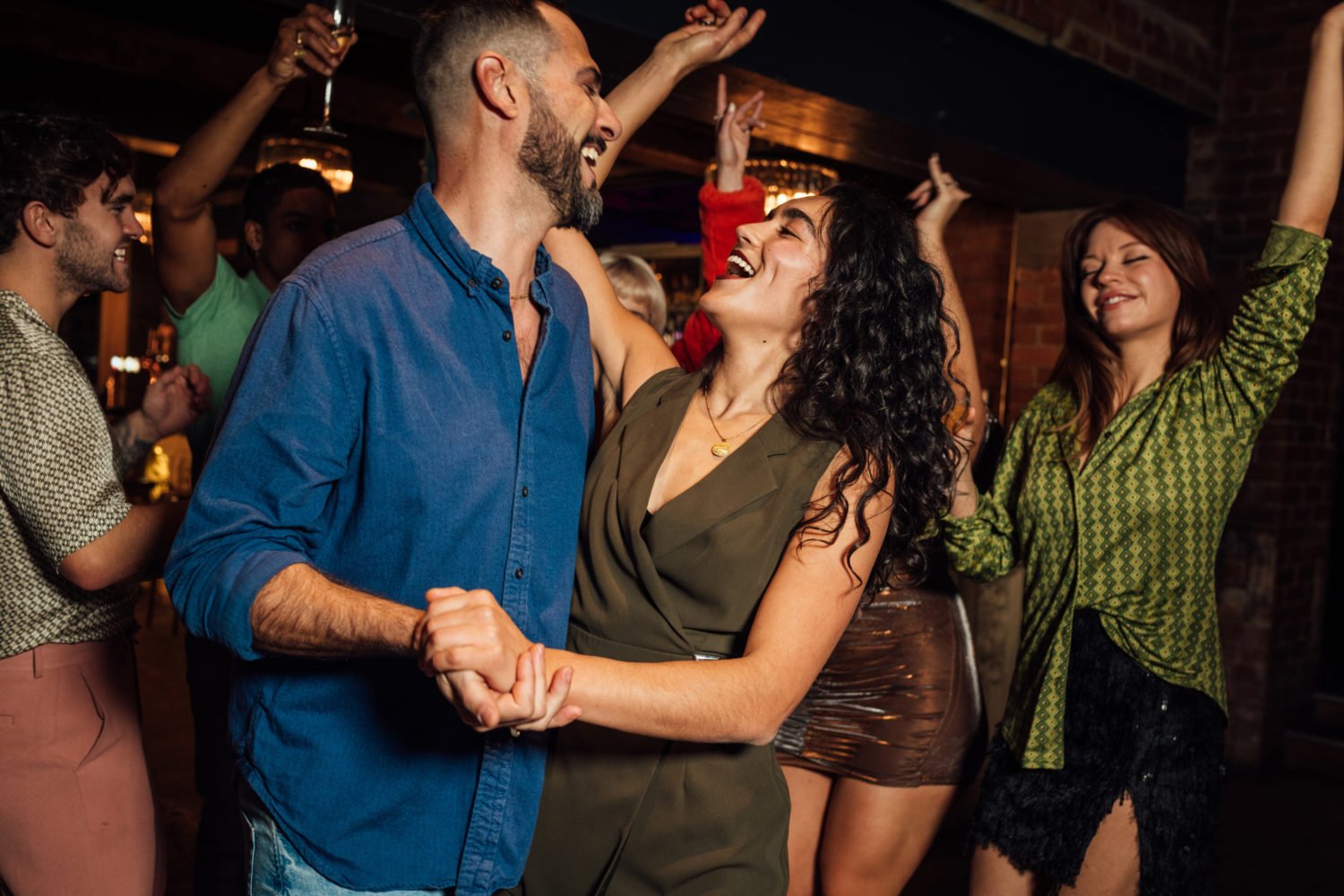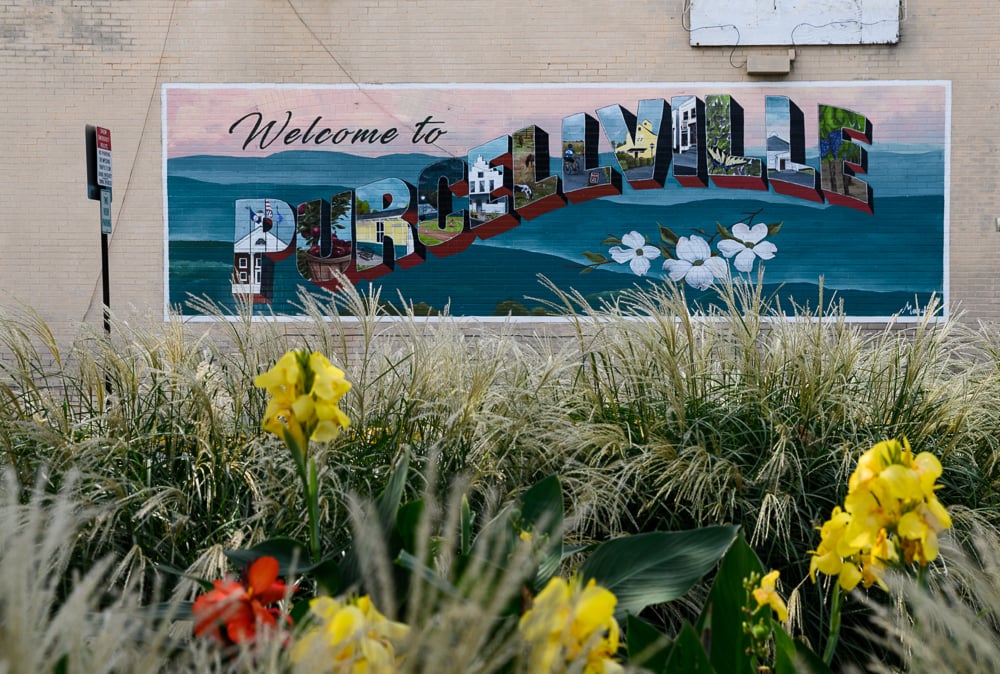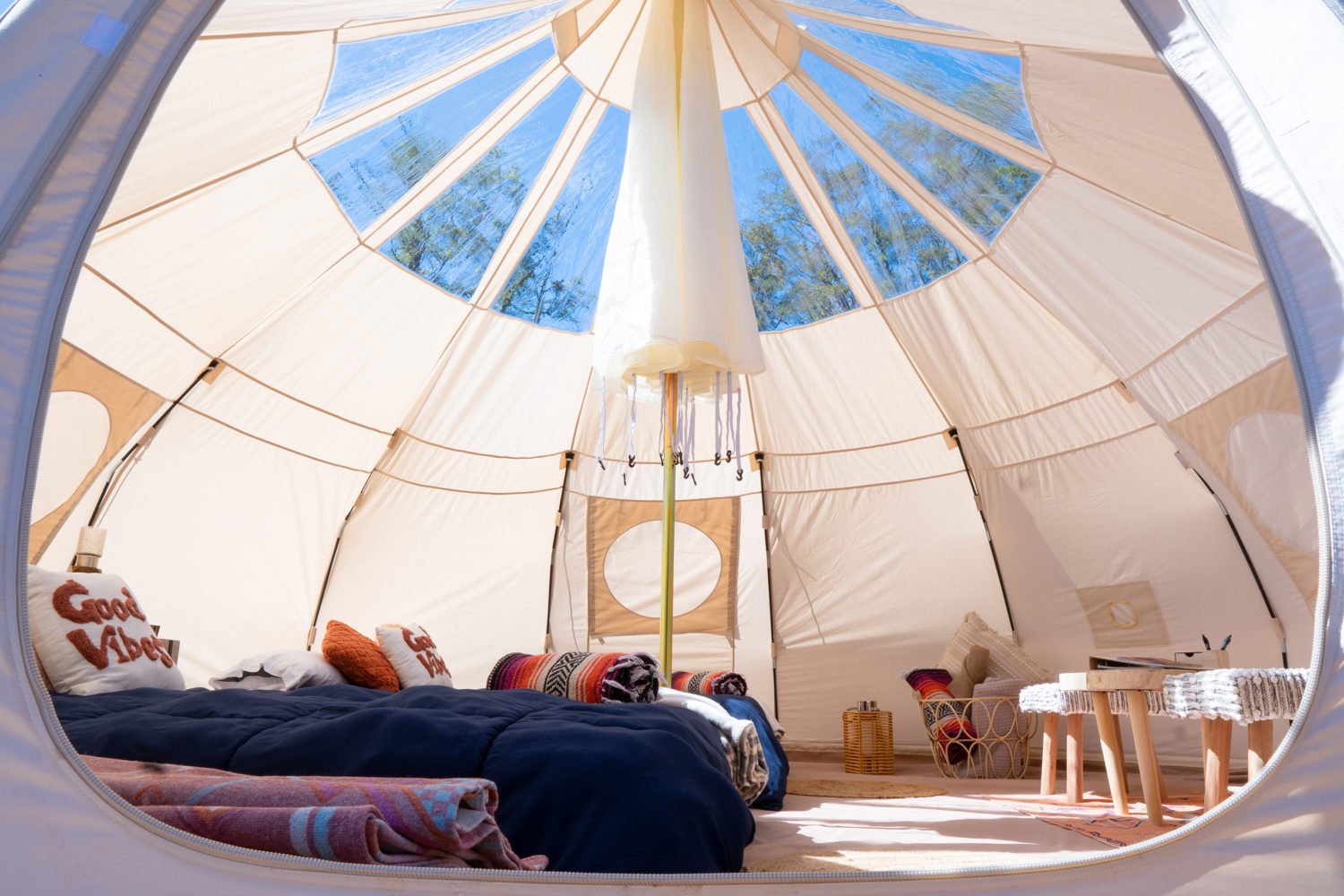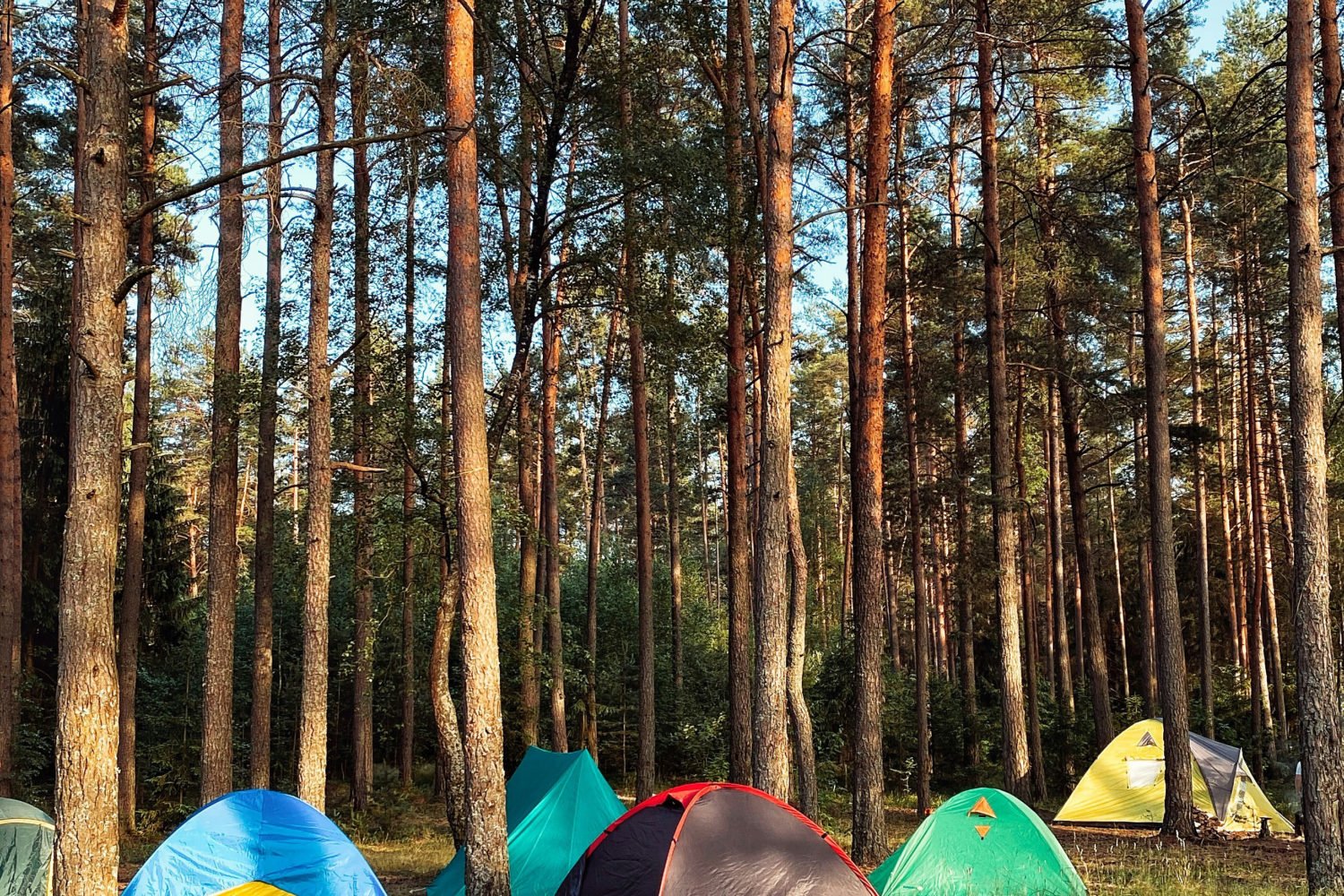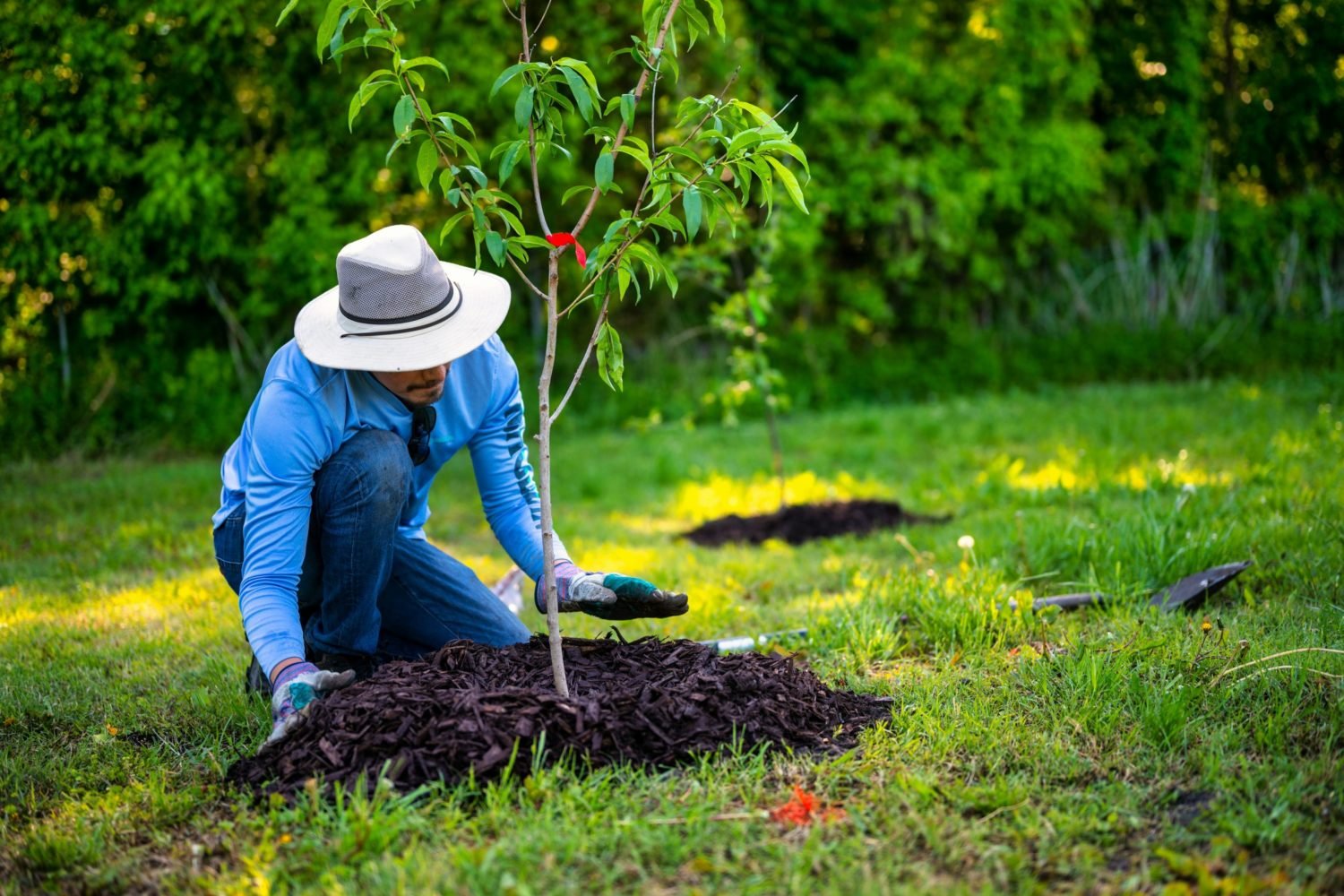RJD2 is something of a musical archaeologist. He sifts through music of every genre, from soul to funk to old-school hip-hop, and even occasionally movies and television shows, and digs up samples, which he builds into densely layered, beat-heavy tracks that are much more than the sum of their parts. His most famous work is, of course, “A Beautiful Mine,” a.k.a. the theme song to Mad Men, but Ramble John Krohn has been making his own brand of electronica for more than 15 years, starting in Columbus, Ohio, and moving eventually to Philadelphia, where he now lives. He’s experimented with drums, guitar, vocals, and all manner of production techniques, making for a constantly evolving sound that rests on the skeleton of soulful riffs mixed with killer beats.
He released his fifth full-length EP, More Is Than Isn’t, in October, the first album to be released on his own label, RJ’s Electrical Connections. He’s currently on tour (including a stop at the 9:30 Club on Sunday) and we caught up with him as he was driving to a show in New York to talk about his creative process, why he has no desire to move to New York, and that one DC show that didn’t go so well.
I noticed you still have a Columbus area code. How long has it been since you moved to Philadelphia?
It’s been about 12 years.
I went there for the first time last year—it’s a great city.
Yeah, it’s one of the few places in America I can safely say is living through a renaissance, particularly in the Midwest—it’s very much a city on the up and up.
How did you find the music scene there?
I was there in the mid- to late ’90s, and I was out and about doing the quote unquote underground hip-hop scene. It was a small place—there was a small handful of people doing things, and so everybody kind of knew each other. It was a tight-knit scene, for better or for worse; good and bad came along with that.
Do you feel pressure to move to New York for your music?
Part of the reason I moved to Philly was because I was having to commute to New York a lot for work at the time. But I knew that owning a home, and putting down roots in New York didn’t seem like a probable . . . it just seemed daunting. You have to be very rich. Whereas Philadelphia has much more affordable real estate, and it has a long history of music that I like, and it’s a much more working-class town. I also probably had more friends in Philly than I did in New York, so all those things kind of pointed to Philly. But from Philly you can get to pretty much anywhere on the Eastern seaboard, via train or whatever, so it was close enough.
Would you say a smaller music community like Philadelphia is more conducive to creativity?
I don’t know. In all honesty, I don’t feel like the context in which I make records is bound by Philadelphia city limits. I felt the same way about Ohio. From the onset I decided I was going to—even though it wasn’t really true—see my peer set as people I looked up to. And that’s still true: I see the context of what I do as a recording artist as being on an international level, more along the lines of what’s happening in the fields of music that I like and want to be a part of.
What was your goal with your latest album?
It actually is the first record I’ve made in a long time that wasn’t goal-oriented or that had a mission statement. If anything, it kind of had an anti-mission statement. I was just making songs; I went into it deciding I was gonna choose the songs and make the record based on what I liked, based on a visceral reaction, instead of trying to put together puzzle pieces, or thinking the songs would play a particular role. I went in with the same goal a batter goes into a season where all he wants to do is shoot for highest batting count possible. He really doesn’t care how that happens; he just wants the highest batting average at the end of the season. I was thinking of this the same way—I didn’t really care what the songs sounded like, or what style of music they leaned toward; I was shooting for the A-plus with the gold sticker.
Do you ever read reviews of your albums or shows?
I try not to. I went through a long period where I swore them off—the past six or seven years, by and I large actively avoided reading them. Occasionally over the last year or so I’ve not been so hard-line about that, but I still try to adhere to that. I don’t think it’s healthy to the creative process.
But with so many social media platforms available, it’s almost impossible to avoid it.
Exactly. That’s why I don’t take a hard line about it; it’s kind of inevitable. Like if I’m going to read my Twitter timeline or replies on Twitter, there’s tons. What, am I gonna hire someone to pre-read them and highlight the things that are comments, that essentially condense reviews of a record? It’s not really realistic, if you’re going to engage with a fan base, to avoid it altogether. The other side of that coin is you have to commit to not engaging your fan base. Everyone is gonna draw that line differently, but when you think about how extreme you’d have to go to to avoid it altogether, it’s pretty extreme; it’s not the kind of thing I think your average person is gonna wanna do.
Have you noticed that the social media component has changed how people consume your music, or has it changed at all how you put something together?
It doesn’t change how I do what I do. I come pretty firmly from school of thought that an album is an art form, and I’ve done that long enough that I have two feet entombed in concrete in that idea, for better or for worse. As to how I see people changing, I notice more often that there are more people who will just hear singles; they’ll only be familiar with singles, or something that’s got a video, or a leak or whatever. It seems like there’s a higher percentage of people who have only heard a couple of songs off the record, whereas if you go back seven or ten years, most of people listen to the entire album.
The same must happen with licensing songs for TV and media, which you’ve done often. Did you ever hesitate to do that because you don’t want one particular song to be the main impression people have of your music?
Well, I’ll say no to things, but not because of a perception. I don’t try to calculate what people’s perceptions are. To some degree I feel like that’s a fool’s game—music is subjective, and people are going to make up their own minds about what they think about a song, so I can’t imagine really caring or putting too much thought into how to carefully groom and nurture a particular image. It kind of goes along with the idea of branding yourself, which is a thing I can’t invest myself in. It’s fine—a thing a lot of people think a lot about it, a lot of management think about it—but that’s not really for me. My ethos around this is to just make records I believe in and make absolutely sure I’m confident in something I’m rolling out. Everything after that I feel like is out of my hands anyway, so why care?
Let’s talk about things you can control. Can you walk me through how you find an idea for a song and start to create it?
It can start in different places. It can start with a sample that has something intriguing about it, and I don’t know how to turn it into a song but it becomes a challenge or a puzzle. Other times I’ll be sitting at a keyboard or the drums, and I’ll just be noodling around and a thing will pop up, like a chord that’s interesting to me. Occasionally I’ll hear something, and for whatever reason it doesn’t sound like someone else’s song, it sounds more like an unfinished idea of my own—that sounds kinda crazy, but that happens to me sometimes. Usually it’s a relationship between drums and an instrument, so it’s basically the template for a groove sort of something like that—an alternate way of doing a thing—so I’ll go to studio and try to flesh that out.
How long does it take to get from idea to completed track?
It can be anything from two days to nine months. A few of the songs on the record are instrumental, and they’re shorter and not quite as complicated, so they came together quickly. It can sometimes happen as short as a couple of hours. But something like “Temperamental”—that took forever to come together, because I had that instrumental and was pitching it to vocalists and nobody really fit. The instrumental was probably a year old by the time [guest vocalist] Phonte took it on and said, “Yeah I think I can do this.”
So what should people expect from your show on Sunday?
It’s gonna be a hybrid thing—I’ve got a new band, and it’s f**kin’ awesome. It’s an incarnation of a bunch of songs I’ve never done, so I’m excited about that. People can expect part deejay, part band; without getting too into technical details, it’s a new way of presenting songs. I’m presenting these catalogue songs I’ve never done, and it works really well.
I remember there was a show of yours at 9:30 that you said didn’t go so well.
In 2010, I did a big US tour, like 60 dates, and the very first date of that tour was the 9:30 Club. At that time I was taking on the mantle of doing a lot of new things with the show . . . it was a complicated show with a band that had a bunch of change around it, and the 24 hours leading up to that show were a complete s**t show. The guys I was playing with were supposed to show up earlier in the day and didn’t get there until 11 the night before, so we were up til 2 or 3 AM. The preparation going into that show was—a lot of it was out of my hands, and there was nothing I could do, so it was a bit of a trial by fire.
When bands go out on tour, the common thing is to book a tour so the first couple of dates essentially don’t matter—that sounds cold, but that’s often what people will do. They’ll start in a small market, and play a couple small markets to iron out the kinks. I didn’t want to do that. I wanted to go into that tour guns blazing. And for that first show, everything was happening way behind schedule; we were hours late, so I was freaking out, and a piece of gear got left in Philly, which I didn’t realize until I was down in DC. So ever since then I want to nail the 9:30 Club. But I feel like I got some presence of mind to some degree, like there was some redeeming element of the last show we played at the club, so that fire doesn’t burn quite as bright as it did before.
RJD2 plays 9:30 Club Sunday, February 23, at 7 PM. Tickets ($20) are available online.

